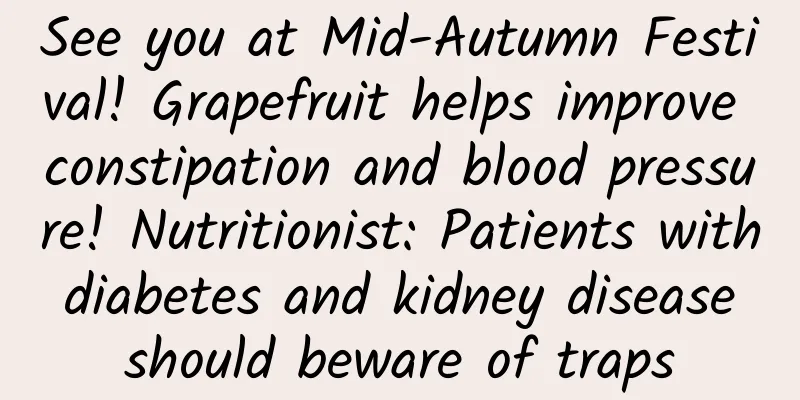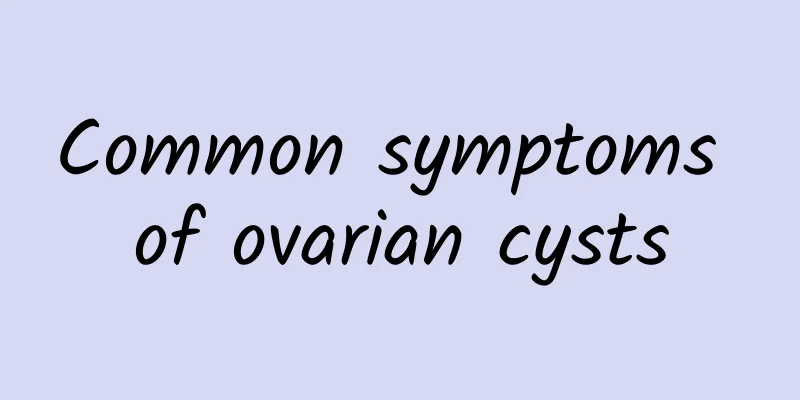See you at Mid-Autumn Festival! Grapefruit helps improve constipation and blood pressure! Nutritionist: Patients with diabetes and kidney disease should beware of traps

|
The Mid-Autumn Festival is coming, and the fruit that suits the occasion is "pomelo", which is not only rich in vitamin C, dietary fiber and potassium ions, but also has antioxidant, digestion-aiding, constipation-relieving, and blood pressure-improving effects. Cathay Healthcare Management nutritionist Lin Yi-ren reminds us that although grapefruit is a nutritious high-fiber fruit, it has hidden pitfalls for people with diabetes and kidney diseases. It is recommended to just taste a few slices and not consume large quantities. Cathay Healthcare Management nutritionist Lin Yi-ren reminds us that although grapefruit is a nutritious high-fiber fruit, it has hidden pitfalls for people with diabetes and kidney diseases. It is recommended to just taste a few slices and not consume large quantities. Patients with diabetes and kidney disease should pay attention Among the six major food categories, grapefruit belongs to the "fruit category", among which carbohydrates are the highest. On average, a 1-pound grapefruit contains about 45 grams of sugar. If a diabetic patient eats a grapefruit, which is equivalent to 3 servings of fruit, it will easily cause a surge in blood sugar. The edible weight of grapefruit is 150 grams (about 5 handfuls), which is 1 serving of fruit. People with abnormal blood sugar levels should pay special attention to the amount they consume. It is recommended to take 1 serving at a time. Grapefruit is also a high-potassium fruit, containing 216 mg of potassium ions per 100 grams. Abnormal kidney function will reduce the ability to excrete potassium ions. If you consume too much potassium-containing food, it may lead to excessive potassium ion concentration in the blood, causing "hyperkalemia" and causing muscle weakness and paralysis, abnormal sensation, numbness of the lips, tendon reflexes, bradycardia, hyperventilation, arrhythmia and even the risk of sudden death. People with kidney disease should be careful to avoid this diet. High in fiber, difficult to digest and high in calories Grapefruit is a high-fiber fruit, containing 1 gram of fiber for every 100 grams. High fiber is difficult to digest, and eating too much can cause abdominal bloating and rapid gastrointestinal motility. Therefore, people with poor gastrointestinal function and prone to diarrhea should avoid consuming large amounts of grapefruit at one time. It is recommended to alternate with other fruits to reduce the burden on the gastrointestinal tract. Grapefruit is a high-fiber fruit, containing 1 gram of fiber per 100 grams. High-fiber fruits are difficult to digest, and eating too much can cause abdominal bloating and rapid gastrointestinal motility. Therefore, people with poor gastrointestinal function and prone to diarrhea should avoid consuming large amounts of grapefruit at one time. In addition, some people mistakenly believe that high-fiber grapefruit can replace vegetables and consume them in large quantities. However, the same weight of vegetables and grapefruit has a 2.5-fold difference in calories and a 3-fold difference in sugar content. 100 grams of vegetables has only 25 calories, but 1 serving of grapefruit has 60 calories. If the recommended daily intake of 4-5 servings of vegetables is replaced with fruits, the daily calorie intake will increase by about 200 calories, resulting in excessive calorie intake and affecting weight loss results. Be careful about interactions with medications Nutritionist Lin Yi-ren said that the furanocoumarin component in grapefruit will inhibit the enzyme CYP3A4 that metabolizes specific drugs in the human body. When the enzyme cannot function, the body's rate of drug breakdown will slow down, or cause an abnormal increase in drug concentrations in the blood, thereby prolonging the time the drug stays in the body, which may be as long as several hours or even two or three days. Adverse interactions may occur with lipid-lowering drugs, antihypertensive drugs, sedatives, hypnotics, antiarrhythmic drugs, immunosuppressants, anti-epileptic drugs, etc. It is recommended that you read the drug instructions carefully and consult a pharmacist before consuming grapefruit to confirm whether there is a risk of drug interaction, and it is best to taste a small amount. Pomelo is sweet and juicy, nutritious and high in fiber, making it a great snack to relieve greasiness after a meal. As long as you pay attention to the amount you consume and the medications you are taking, you can have a healthy and carefree Mid-Autumn Festival. |
Recommend
What factors may cause pelvic inflammatory disease
Since pelvic inflammatory disease is a gynecologi...
Can pregnant women with Bartholinitis be transmitted to the fetus?
Can pregnant women with Bartholinitis transmit it...
Get rid of belly fat~ Homemade "Chinese herbal oil-cut green tea" helps reduce fat
Eating and drinking a lot at the year-end party m...
Ariel Lin doesn’t eat cold foods to lose weight, and only eats the stems of vegetables? Nutritionist: The key to success is...
Lin Yichen, who has been in the industry for many...
What are the abortion drugs? How to use the drugs if you want to have an abortion?
Medical abortion, also known as "medical abo...
How to treat uterine fibroids after pregnancy? Symptoms of uterine fibroids after pregnancy
If you have uterine fibroids after pregnancy, fem...
What causes endometrial thickening?
Endometrial thickening is a common gynecological ...
Advantages of laparoscopic surgery in ovarian cyst surgery
Ovarian cyst surgery has been around for a long t...
How to deal with dysmenorrhea in daily life
Dysmenorrhea is a painful problem for women. Many...
Can sit-ups reduce belly fat? Bodybuilding Queen Li Xian'e Debunks 4 Myths
Want to make your body as firm and elastic as whe...
Acute and chronic adnexitis will have different degrees of symptoms
Acute and chronic adnexitis will have different d...
Treatment methods for uterine fibroids surgery What to eat after uterine fibroids surgery
How many days does it take to recover from uterin...
Uterine fibroids can only be treated surgically. What are the treatments for uterine fibroids?
Uterine fibroids are a relatively common gynecolo...
What should women do if they have uterine fibroids? What are the symptoms of uterine fibroids in women?
Everyone must understand the symptoms of female u...
Why do you get vaginal candidal infection?
Why do you get candidal vaginitis? There are diff...









